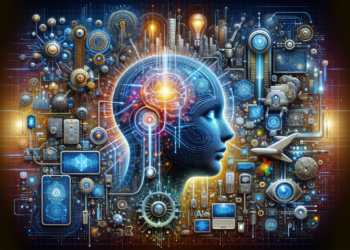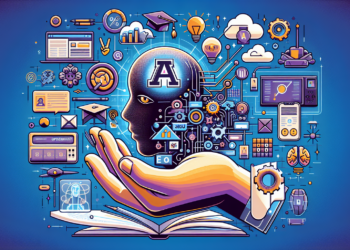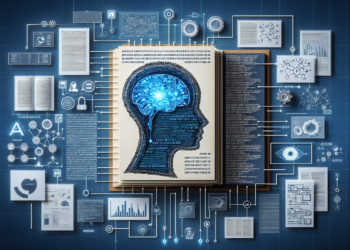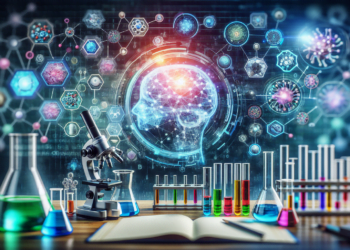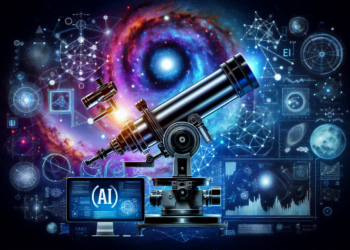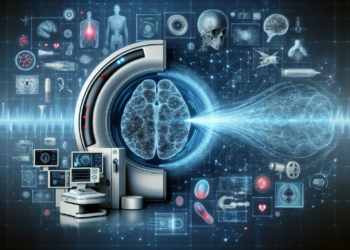Artificial intelligence (AI) has burst onto the scene with transformative force in an array of sectors, including education. Far from being a mere collection of algorithms and data, it has become a key ally for educators, serving as a catalyst for more personalized and efficient teaching. In this context, the intersection between AI and pedagogy has unveiled a plethora of innovative tools and methods aimed at enhancing teaching productivity and enriching the pedagogical paradigms.
Optimization of Teachers’ Workload
A significant application of AI in education is the automation of administrative tasks. Consider pattern recognition systems capable of grading assignments and tests, which, by freeing up educators from the burdensome and monotonous task of marking, allow them to shift their focus to more fruitful endeavors like curriculum design and personalized feedback. Algorithms based on Natural Language Processing (NLP), such as BERT (Bidirectional Encoder Representations from Transformers) and GPT-3 (Generative Pre-trained Transformer 3), exhibit astonishing competencies in language comprehension, enabling automated assessment of open-ended responses with a degree of accuracy that challenges human capabilities.
Personalization of Learning
The zenith of individualized instruction is reached when teaching is tailored to the unique learning pace and style of each student. Through adaptive AI systems, like smart Learning Management Systems (LMS), data from student performance is analyzed to provide educational paths shaped to their cognitive profiles. These intelligent tutoring systems excel at early detection of learning difficulties and at adapting teaching materials to overcome specific barriers, contributing significantly to the continual improvement of the educational process.
Predictive Assessment and Data Analytics
AI also benefits from its predictive capabilities to foresee future academic performance. This is achieved by using machine learning models such as those based on neural networks, which process large volumes of data to detect patterns and trends. These models enable early and tailored interventions, directed at students at risk of underperformance or dropping out, undeniably fostering proactive improvement in the quality of teaching.
Creation of Dynamic Educational Content
AI-based content generators are redefining the notion of educational materials. Whether through text synthesis or the generation of images and videos using techniques like GANs (Generative Adversarial Networks), these systems provide enriched and personalized educational resources. Educators can thus focus on curating and enriching content, knowing they have an inexhaustible virtual pantry of AI-generated auxiliary resources at their disposal.
Improvement of Language and Global Accessibility
AI solutions in real-time translation and subtitling are removing language barriers, democratizing access to high-quality education. This not only benefits students who speak various languages but is also a valuable tool for teachers wishing to expand their instructional horizons to international audiences. The evolution of automatic translation algorithms, now delving into contextual comprehension and linguistic subtleties, heralds a future where language limitations are merely a footnote of the educational past.
Challenges and Ethical Considerations
Along with advancements come ethical questions and practical challenges. Transparency in algorithmic functioning, the privacy of student data, and the possibility of unintended biases in AI tools are critical points that require constant vigilance and regulatory frameworks. Moreover, emphasizing the importance of maintaining a human-technology balance is paramount to avoid dehumanizing the educational experience, preserving the invaluable teacher-student relationship.
Case Studies: Successful Implementations
A relevant case study is the Georgia State University’s Grade Performance Status system (GPS), which, through AI’s predictive algorithms, has improved student retention by projecting and addressing potential deviations in academic trajectories. This type of implementation demonstrates the tangible potential of AI in revolutionizing the educational environment.
In summary, AI is spurring a revitalization of teaching methods and the emergence of more effective and accessible instructional practices, thus leading to an increase in teaching productivity. This technological synergy, a blend of computer science and pedagogy, is still in its infancy; yet, it promises a paradigmatic shift in the way we educate, learn, and interact within the educational ecosystem.


